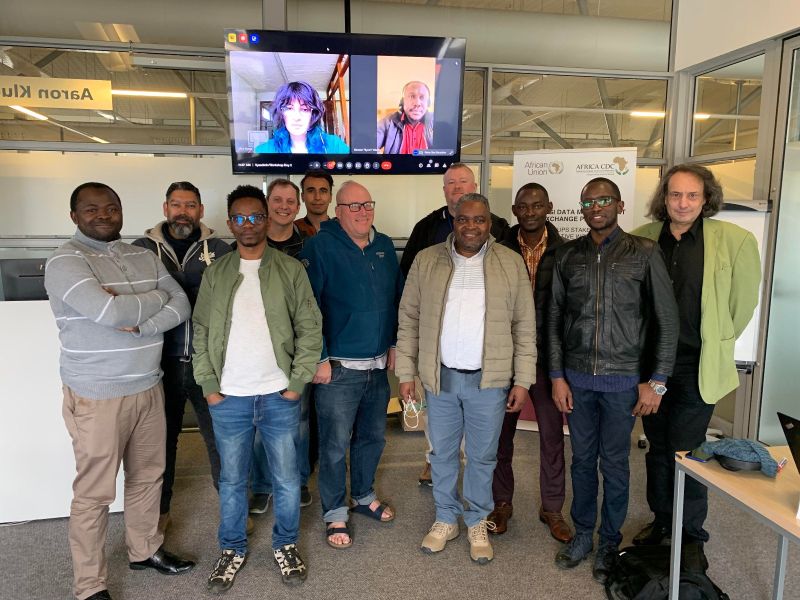Sysadmin Curriculum Planning
Workshop on filling the sysadmin skills gap to support public health bioinformatics & genomic epidemiology in Africa

Public health laboratories often face the challenge of processing vast amounts of data, such as outputs from sequencing machines. This can quickly become overwhelming for scientists and bioinformaticians alike. To improve workflow efficiency and strengthen scientific infrastructure, these labs require skilled professionals proficient in Linux system administration and HPC compute environments.
In response to this need, Professor Alan Christoffels and Peter van Heusden from the South African National Biodiversity Institute convened a group of experts from Africa, Europe, and beyond to develop a training curriculum aimed at bridging the sysadmin skills gap. This initiative seeks to bolster public health bioinformatics and genomic epidemiology across Africa.
The diverse group of participants, hailing from public health labs, research institutions, and initiatives such as the Galaxy Project, de.KCD, UK MRC CLIMB-BIG DATA, RSSE.Africa, Public Health Alliance for Genomic Epidemiology (PHA4GE), and H3ABioNet, gathered for a week-long workshop at the University of the Western Cape in Cape Town, South Africa, to share knowledge and ideas.
Together, the group identified potential roles in the public health labs and drafted curriculum modules inspired by the HPC Certification Forum, covering key areas such as hardware, monitoring, documentation, and storage. By actively contributing to discussions, Mira Kuntz (appearing on-screen, left) helped pushing towards de.KCD's project goals of developing a structured training program and self-learning units consisting of learning paths and modules and to train researchers, software developers and system administrators to perform their data processing and analysis.